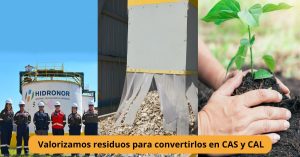
In a context where the circular economy has become a central axis of environmental policies, Chile faces important challenges to strengthen its recycling system.
The National Roadmap to the Circular Economy, promoted by the Government, seeks to transform the country's productive model towards a more sustainable one, reducing waste generation and promoting reuse and recycling. With goals for 2040, this strategy promotes innovation in production processes, ecodesign and the development of regulatory frameworks that promote circularity.
Despite advances in regulations and environmental awareness, recycling in Chile still faces structural barriers that make its consolidation difficult. By 2025, the five main challenges that the country must overcome in this area are:
1. Insufficient infrastructure for waste management:
Although there has been progress in the installation of clean points and recycling plants, coverage remains limited, especially in regions. It is essential to increase investment in technologies and collection centers to improve the collection and processing of recyclable materials.
2. Low household recycling rate:
Chile has one of the lowest recycling rates in the OECD. The lack of separation at origin and the lack of environmental education continue to be major obstacles. It is key to reinforce awareness campaigns and improve differentiated collection logistics to increase citizen participation.
3. Implementation of the REP Law:
The Extended Producer Responsibility Law (REP Law) establishes that manufacturers must take responsibility for the waste generated by their products. However, its application still faces challenges.
4. Development of markets for recycled materials:
For recycling to be economically viable, it is necessary to increase the demand for recycled materials in the industry. This implies incentives for companies to incorporate recycled inputs into their production processes and the development of policies that encourage sustainable public purchasing.
5. Lack of articulation between sectors:
The success of recycling in Chile requires collaboration between the Government, companies, municipalities and citizens. It is crucial to strengthen public-private partnerships, improve regulation and promote more efficient waste management to move towards a circular economy model.
2025 represents a key year for sustainability in Chile. Overcoming these challenges will allow us to consolidate a more efficient and sustainable recycling system, aligned with the objectives of the National Roadmap to the Circular Economy and with the global commitment to reduce environmental impact.







